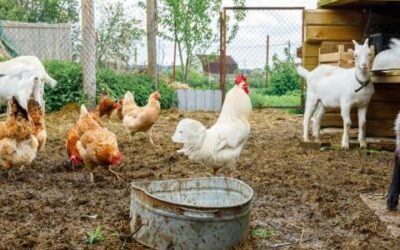
Horse enthusiasts and caretakers are well aware that proper nutrition is the cornerstone of equine health. Amid the jargon of equine nutrition, one term that frequently surfaces is NSC or non-structural carbohydrates. With the dietary addition of non-structural carbohydrates, horses can live a long and healthy life. But what exactly is NSC, and why is it crucial for the well-being of our beloved equine companions?
Defining NSC
Non-structural carbohydrates refer to sugars and starches present in plants. For horses, these carbohydrates primarily come from grains like oats, barley, and corn, as well as from lush, growing grass. While these sugars and starches are essential energy sources, excessive intake can pose significant health risks, especially for horses prone to metabolic disorders like insulin resistance and laminitis. This means it’s important to have all the information on-hand before using non-structural carbohydrates in horse feed.
The Role of NSC in Horse Nutrition
In the equine digestive system, carbohydrates are broken down into glucose, providing the energy necessary for bodily functions and activities. However, if the horse’s diet contains an excess of NSC, it can lead to an overload of glucose in the bloodstream, causing insulin spikes and subsequent health issues. Horses with conditions like laminitis are particularly sensitive to high NSC levels, which can trigger painful hoof inflammation and lameness. Be cautious and avoid using an overabundance of non-structural carbohydrates in horse feed to ensure your equines have a balanced diet.
Balancing NSC Intake
Maintaining an optimal NSC intake is vital for horse health. Horse caretakers should focus on providing a well-balanced diet, incorporating forages like hay and pasture grass, which have lower NSC content than grains. Regular monitoring of the horse’s body condition, weight, and overall health, in consultation with a veterinarian, can help adjust the diet according to the horse’s individual needs.
Practical Tips for Managing NSC Intake
For farmers, understanding NSC equine nutrition is a key part of keeping animals from gaining too much weight or developing diseases. These tips will ensure you get it right the first time.
Pasture Management: Limiting pasture access, especially during spring and early summer when grasses are high in sugars, can prevent NSC overload.
Forage Quality: Choosing high-fiber, low-sugar hay for horses ensures a balanced diet while keeping NSC levels in check.
Feed Selection: Opt for commercial horse feeds specifically formulated with controlled NSC levels, catering to the unique dietary requirements of horses.
Regular Exercise: Regular physical activity not only keeps horses fit but also aids in managing their blood sugar levels effectively.
Understanding and managing NSC levels are pivotal for ensuring the well-being of our horses. By paying careful attention to the types of forage and feed provided, along with consistent veterinary oversight, horse caretakers can navigate the nuances of NSC, fostering a healthier and happier life for their equine companions.




